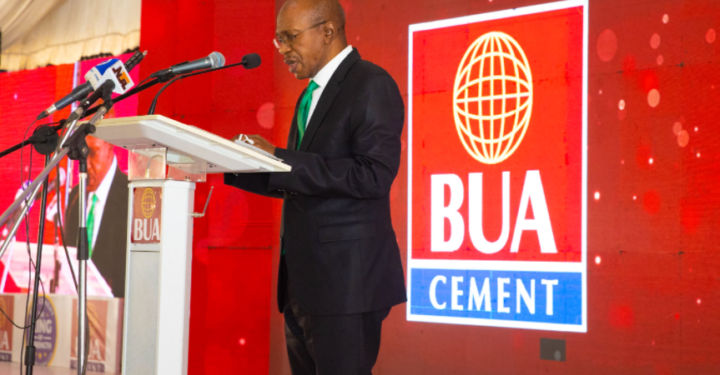- He noted that the end-users who were supposed to be be the main beneficiaries of the subsidy were short-changed by dealers who were selling each bag of cement for prices ranging from N7,000 to N8,000
Major cement manufacturer, BUA, has disclosed that its plan to sell the product at a relatively cheap rate was frustrated by cement dealers.
AbdulSamad Rabiu, the Chairman of BUA Cement, made the disclosure on Thursday while addressing newsmen in Abuja.
Recall that the company had in 2023 announced its plan to slash the price of cement and sell the product for N3,500, the company however shelved the plan and reverted to the market price.
Speaking on why the company did not proceed with the price reduction announcement, Rabiu said the plan did not materialise because it was frustrated by the antics of selfish and callous cement dealers.
Rabiu said BUA sold over a million tons of cement to dealers at N3,500 per bag, intending for these to be transferred to the end-users.
He, however, noted that the end-users who were supposed to be the main beneficiaries of the subsidy were short-changed by dealers who were selling each bag of cement for prices ranging from N7,000 to N8,000.
Rabiu stated that the company had to halt the policy since its goal was not intended to support dealers financially.
He mentioned that BUA Cement was unable to regulate the dealers who, he claimed, were earning unfair enormous profits due to the high margins, as the company lacked influence over pricing in the open market.
He said, “So, a lot of the dealers took advantage of that policy. Rather than pass the low prices to the customers, they were selling at even double the price we sold to them.
“Some were selling at N7, 000 and 8 000 per bag. They made a lot of money with a very high margin. I think we had sold more than a million tons at N3,500 before we realised what the dealers were doing”
He also disclosed that the devaluation of naira and the removal of subsidy on petrol also played a role in its decision to discontinue the price slash policy.
“And then, because of the issues that Nigeria faced at the time about devaluation of the Naira last year and the removal of fuel subsidy, we could not continue that policy.
“We wanted that price to stay at that level but dealers refused. So, we could not sustain that simply because we did not want to be in a situation where we are subsidizing dealers.
“I’m referring to the point when the foreign exchange rate moved from about N600 to maybe N1,800 to the US Dollar. So, it became even more challenging and more difficult for us to actually sustain that price policy.”










Discussion about this post